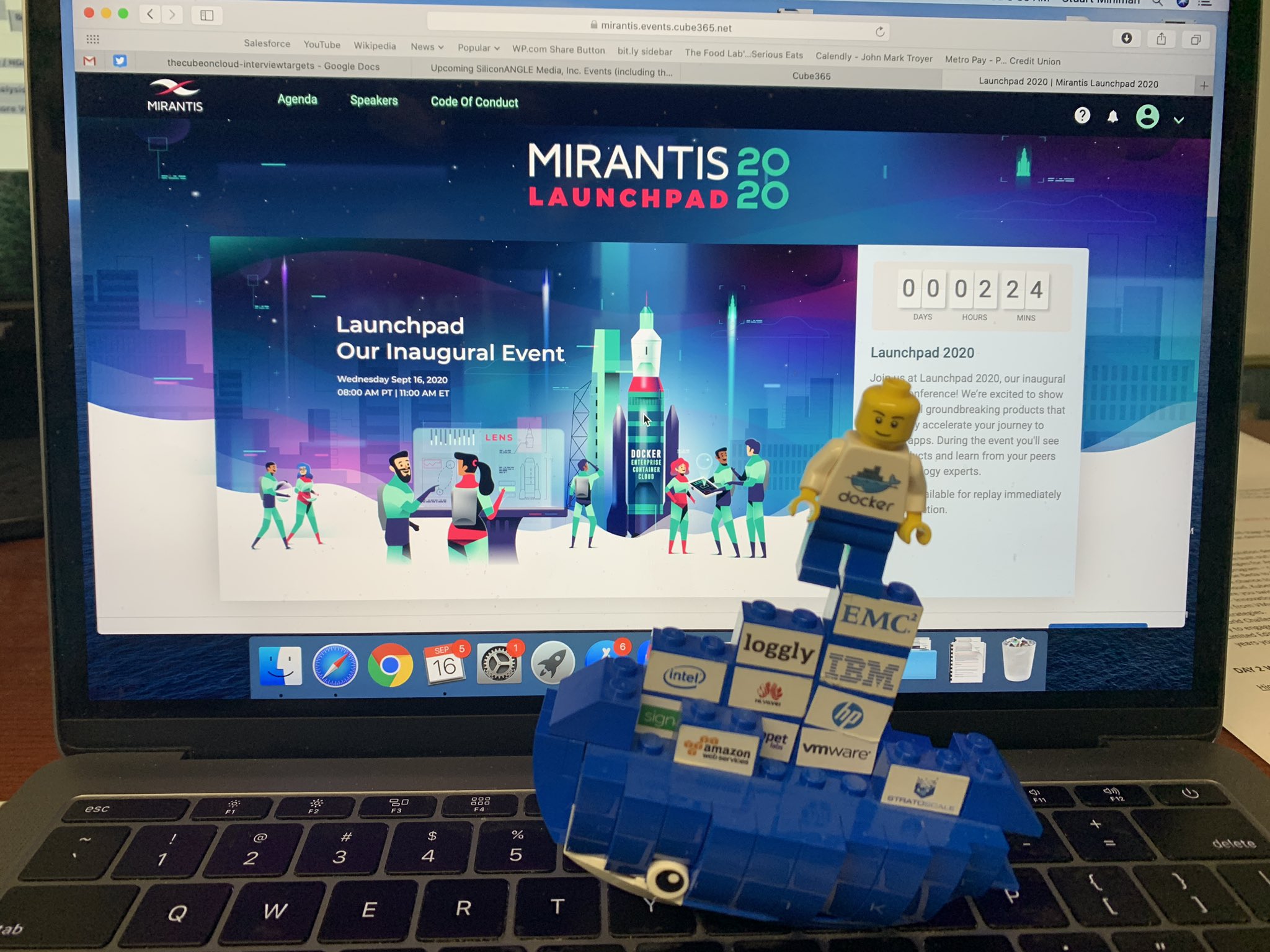 CLOUD
CLOUD
 CLOUD
CLOUD
 CLOUD
CLOUD
After acquiring the enterprise business from Docker Inc. last year, Mirantis Inc. did something that a lot of firms, eager to reap value from its new investment, might not have done. The company first listened to customers.
What Mirantis heard from its customer base, which included large multinational companies such as Apple Inc., Visa Inc., GlaxoSmithKline PLC and PayPal Inc., was that while users appreciated the value of Docker Enterprise as a technology, they wanted to see more in terms of customer support and clarity on the product roadmap.
This insight has clearly shaped the Mirantis strategy since. As part of the first new Docker Enterprise release under Mirantis in May, the version was accompanied by updated service-level agreement options for mission-critical workloads. Dedicated service resources were also announced, including LabCare, OpsCare and ProdCare, an option that now includes a 24/7 level of customer support. And, in September, the company expanded its subscription support services to include the new Docker Enterprise Container Cloud.
Clarity on the product roadmap was an area of particular interest to developers, and Mirantis has leveraged its open-source experience and focus on Kubernetes to extend its outreach into the DevOps community. One of the key elements for the company’s approach has been through Lens.
As an open-source integrated development environment for Kubernetes, Lens helps developers manage and monitor how applications interact within the IT infrastructure. Mirantis acquired the technology in August along with the company which developed it — Kontena.
Lens’ popularity with developers came with an added bonus. Through an MIT license under GitHub, several of the world’s largest companies are Lens users, including Zendesk Inc., Adobe Inc. and Apple.
“There is another piece of the story that’s always been going through our minds, which is how do we become more developer-centric and developer-focused,” said Adrian Ionel, chief executive officer of Mirantis, during an interview in August. “As we’ve all seen in the past 10 years, developers have become more and more in charge of what services and infrastructure they’re actually using.”
Mirantis’ focus on customer support and a more developer-centric approach are part of a larger strategy involving Docker Enterprise. As the power of cloud emerges and the pace of change in technology accelerates, the company wants to provide solutions that enable faster shipment of code.
This will mean that tools such as Kubernetes and Lens must allow workloads and applications to be tested and developed on any infrastructure, a concept captured in the Mirantis tagline: “Your cloud, everywhere.”
Docker Enterprise Container Cloud is geared to provide a consistent experience across public and private clouds alike. Code gets shipped faster on any infrastructure while meeting security standards and offering choice for developers.
There is a self-service element to this concept as well. Docker Enterprise Container Cloud provides an API that gives developers control to manage and scale Kubernetes clusters fast and securely.
Dating back to earlier times when it was a pure-play OpenStack vendor, Mirantis positioned itself by offering a range of choices and extensibility in the cloud without lock-in. The company’s more recent moves appear designed to continue that theme.
“For companies to successfully make the move to modern apps, they need to put the power of Kubernetes in the hands of their developers without suffering from complexity and lock-in,” said Doug Laird, Mirantis’ chief marketing officer, in a statement at the time of the Lens acquisition in August. “Mirantis is pushing the boundary of what’s possible with Kubernetes, and we’re excited to show the world new ways to empower developers working on cloud native apps.”
While Mirantis is positioning Docker Enterprise as a way for developers to avoid complexity and lock-in, there are still multiple choices for organizations seeking to create a unified container strategy.
The major public cloud providers offer a wealth of services, although the cost of these “shiny tools” has been a growing source of enterprise concern. Platform-as-a-Service oremoves the need for in-house hardware or software for platform creation, but dependence can lead to lock-in and data security is often a question when the information is stored with the provider. A “do-it-yourself” model for open-source tools such as Kubernetes offers plenty of flexibility and choice, while the ease of management can be lacking, especially given the complexities of Kubernetes itself.
Mirantis stands out as an alternative to these three options by offering a Kubernetes platform that is flexible and provides automated cluster deployment across multiple environments with a wide range of available services while avoiding lock-in.
“It gives maximum flexibility to your developers and does not require an all-in approach,” said Thomas Loepp Thiessen, sales development representative for Mirantis, in an August blog post. “In other words, our preference would be for a commercial open-source container management system that does not require you to forgo Azure, AWS or VMware for certain use cases. For example, our solution is designed to fit on top of public clouds, OpenStack and bare metal, all while giving you a single pane of glass for unified development.”
The decision by Mirantis to let its customers control the narrative has shaped the evolution of Docker Enterprise over the past year. The company has responded with a string of new services and products based on choice, simplicity and security for Kubernetes users while enabling developers to focus on a singular mission: ship code faster.
To view all presentations from the Mirantis Launchpad 2020 event, click here.
(Disclosure: TheCUBE was a paid media partner for the recently concluded Mirantis Launchpad 2020 digital event. Neither Mirantis Inc. nor other sponsors have editorial control over content on theCUBE or SiliconANGLE.)
THANK YOU